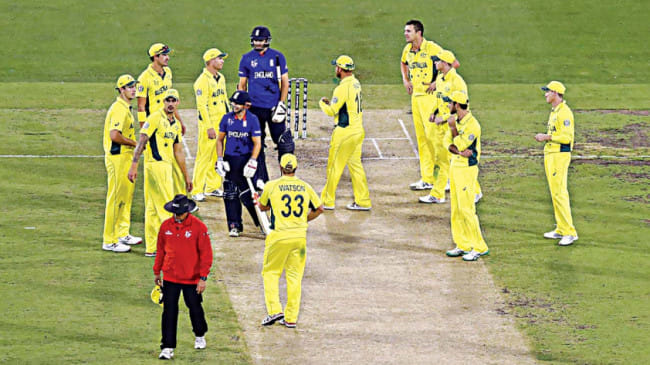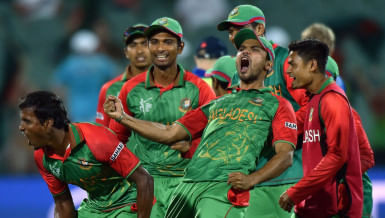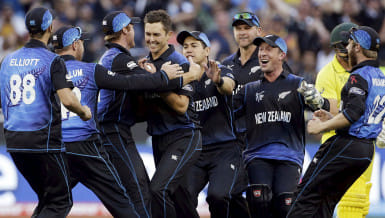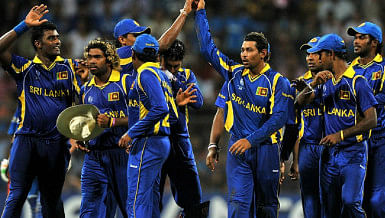The upcoming 2019 World Cup in the UK will be the 12th staging of the ICC Cricket World Cup, with ten teams set to face each other in a round-robin league system for the first time since the 1992 World Cup.
Host England, who have been part of the World Cup opener the most of number times, will once again take part in the opening game of the ICC World Cup 2019. The hosts will face South Africa at the Kennington Oval in London on May 30.
The modern era fifty-over format began in the 1992 World Cup jointly hosted by Australia and New Zealand. The tournament, then named the Benson & Hedges World Cup 1992, was the first to feature coloured jerseys, a white cricket ball and black sightscreens while a few matches were played under lights.
However, it can be mentioned that almost all the opening matches of the World Cup so far remained one-sided contests, apart from one or two close encounters.
1992 World Cup
Among the two opening matches of the 1992 World Cup, hosts Australia faced a comprehensive 37-run defeat against co-hosts New Zealand, who rode on skipper Martin Crowe's unbeaten century. In the other match of the day, England clinch a nine-wicket victory over India, with Robin Smith top-scoring with 91 runs. Imran Khan's Pakistan went on to become the Champions of the 1992 World Cup, beating England in the final by 22 runs.
1996 World Cup
India, Pakistan and Sri Lanka hosted the 1996 World Cup, which was officially called Wills World Cup 1996. England once again took part in the opening game of the tournament but faced an 11-run defeat to New Zealand after opener Nathan Astle struck a century. Arjuna Ranatunga's Sri Lanka became champions, beating Australia by seven wickets in the final.
1999 World Cup
The World Cup in 1999 returned to England and the hosts once again featured in the opening game of the tournament. The English side clinched a comfortable eight wicket win over Sri Lanka, with skipper Alec Stewart top-scoring with 88 runs. The 1999 ICC World Cup was also significant for Bangladesh as it was the maiden World Cup appearance for the Tigers. Aminul Islam's side made it memorable by beating Scotland and giants Pakistan on their maiden World Cup appearance. It was Australia who clinched the title by beating Pakistan by eight wickets in the final.
2003 World Cup
The 2003 World Cup was co-hosted by South Africa, Zimbabwe and Kenya. The opening game between South Africa and West Indies was arguably the most exciting World Cup opener till date. Chasing a target of 279 posted by the West Indies, South Africa required nine runs off the last over but eventually lost the game by just two runs. Needing six runs to win off the last ball, Nicky Boje struck a boundary to Vasbert Drakes and their campaign began the World Cup campaign with agony. Australia retained their World Cup title, beating India in the final by a huge margin of 125 runs.
2007 World Cup
The 2007 World Cup was hosted by West Indies. It was yet another one-sided World Cup opener as the hosts registered a comprehensive 54-run win over Pakistan. It was also one of Bangladesh's best World Cup campaigns as Habibul Bashar's side beat India by five wickets in their opening game. Bangladesh went on to reach the Super Eight stage, where they registered a famous 67-run win over South Africa. It was Australia who once again lifted the trophy, clinching a hattrick of World Cup titles -- the first-ever.
2011 World Cup
The 2011 ICC World Cup was significant for Bangladesh as they hosted the flagship event for the time as co-hosts alongside India and Sri Lanka. Bangladesh, for the first time, took part in the opening game of the World Cup. However, Shakib Al Hasan's side faced an 87-run defeat to India at the Sher-e-Bangla National Stadium in Mirpur. Mahendra Singh Dhoni's India went on to win the World Cup, beating Sri Lanka in the final by six wickets.
2015 World Cup
After the 1992 World Cup, Australia and New Zealand again jointly hosted the 2015 ICC World Cup. Both the hosts won their respective opening matches of the World Cup the same day, beating Sri Lanka and England by 98 and 111 runs respectively. Australia once again clinched the title, this time under skipper Steve Smith. They comfortably defeated co-hosts New Zealand in the final by seven wickets and clinched their fifth World Cup title. It was also the first time that Bangladesh, under Mashrafe Bin Mortaza, reached the quarterfinal of the World Cup.



 For all latest news, follow The Daily Star's Google News channel.
For all latest news, follow The Daily Star's Google News channel. 









Leave your comments